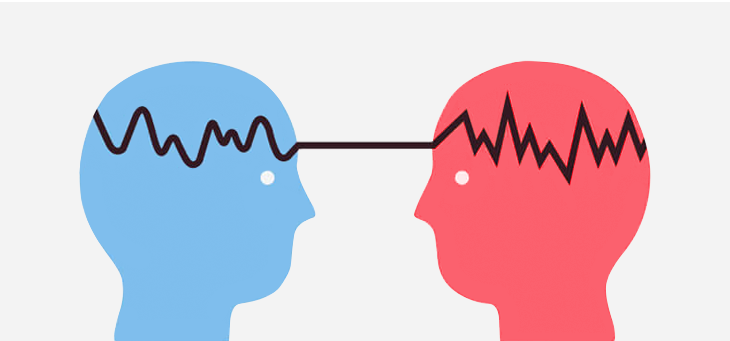Mirror Neurons and its Effect on Advertising.
One of the basic facts that distinguishes humans from other living things is empathy. Empathy is a skill we have thanks to mirror neurons. The effects of these neurons on advertising may be more important than you think.

Science also makes discoveries while trying to understand to person. The subject of today's article is one of these discoveries, the mirror neuron and its effects on advertising. Of course, to understand the mirror neuron, we must first understand what a neuron is.
What is a neuron?

The nerve cell, which is the cornerstone of the nervous system, is called a neuron. Neurons are similar to other cells in our body in many ways. But the key feature that distinguishes them is that they transmit information. In other words, the basic structure that constitutes human intelligence, perception, and consciousness is neurons.
Like most basic building blocks in the human body, neurons have taken millions of years to form and develop. Scientists are working relentlessly to understand the extremely complex structure of neurons. In this context, one of the latest discoveries, the "Mirror Neuron", brings us closer than ever to understanding human beings.
Mirror neuron and empathy
One of the basic facts that distinguishes human beings from other living things and thus makes them human is the ability to empathize. For example, imagine watching someone eating extremely sour food on TV. Your face will turn sour while watching that person.
One of the most well-known examples is yawning. Don't you yawn too when someone in front of you yawns back and forth?

Research suggests that all this is due to mirror neurons. In short, mirror neurons are the basis of our ability to empathize. Of course, mirror neurons don't just exist in humans. In animals, mirror neurons are the basis of some simple movements. But they do not have a complex structure like humans.
Research continues that mirror neurons also linked to various diseases such as autism. This is the subject of neurology. But it can be important data to understand how effective it is in human life.
Coming back to the empathy part, according to psychologist Carl Rogers, when a person puts himself in the other person's place and sees things from his point of view, it is called "empathy". In this process, people try to understand, feel and convey the feelings and thoughts of that person correctly. This is where mirror neurons and thus empathy have to do with advertising.
Connecting with the consumer
We call brand loyalty the formation of a loyalty between the consumer and the brand. For example, it is such a loyalty that someone who will buy a smartphone always prefers the same brand. The fact that he does not give up on that brand easily and even owns and protects it shows his loyalty. Every brand wants to establish such a bond with its consumers. Here we come to an important issue. When creating a brand advertising campaign, it is necessary to activate the mirror neurons of the consumers. Thus, the consumer empathizes with the brand and brand loyalty occurs.
Advertisers pay intuitive attention to these issues when creating their campaigns. However, the effect of mirror neurons manifests itself in many different ways. For example, food brands often use banners to promote their new releases. Consider a chocolate product that has just hit the market. Do you think the chocolate image should be used as bitten on the poster designed to promote this product? Or unbitten?
This is where the mirror neuron and its effects on advertising come into play. The bitten area on the chocolate, thanks to the Mirror Neuron in the brain, enables the viewer to empathize with the image and get an emotional effect as if he bit the chocolate himself. Thus, the person looking at the poster craves chocolate. Neuromarketing techniques capture such details and offer tips that will significantly increase the effect of the poster you have designed.

You can reach our article on Neuromarketing Examples, in which we have covered this subject in more detail on a hamburger image, by clicking the link.
Considering all this, the brand should ask itself the following questions in its advertising campaign:
– Do our consumers see themselves in our product or advertisement?
– Or is the profile we present to them someone else entirely?
– Do we look like the people who inspire them?
– Do we speak their language?